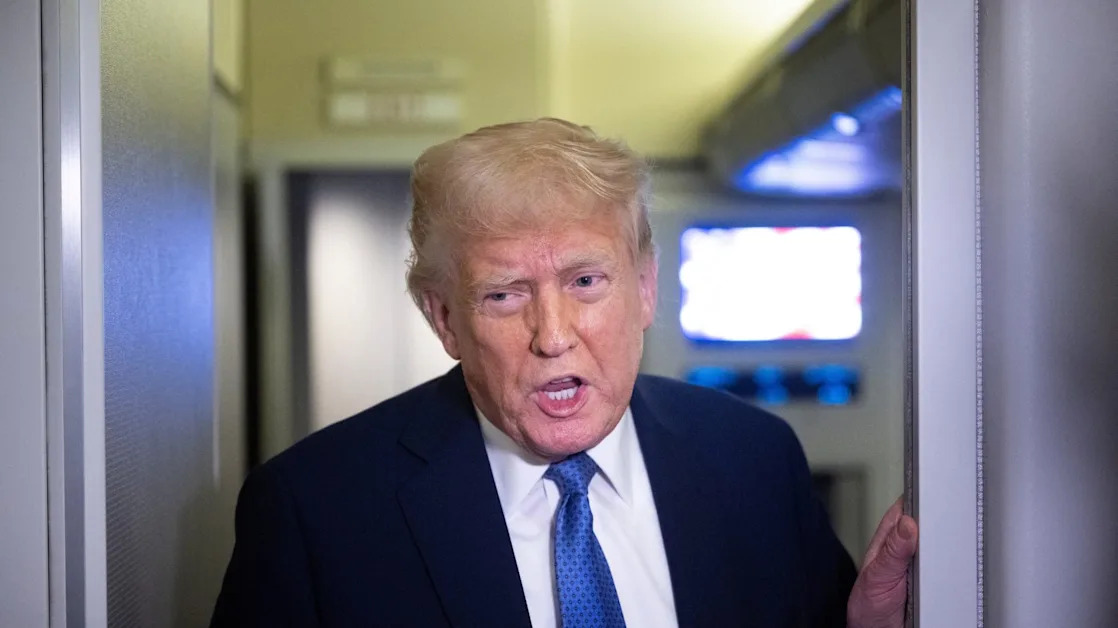Wall Street sell-off is actually being caused by warped expectations vs reality, says JPMorgan strategy boss
When Donald Trump won the election
JPMorgan Chase
CEO Jamie Dimon said bankers would be
dancing in the street
. Why? There was a business-friendly, pro-growth, regulation-lite, tax-opponent president soon to be in the White House.
Or so they thought.
In reality, they've got an Oval Office ramping up tariff policy—which
many are beginning to frame as a tax
—working hand-in-hand with cost-cutting austerity measures in the form of the
Department of Government Efficiency
.
Moreover, they've got a White House that appears unbothered by market disruption and
relatively agnostic
about whether or not its policies will prove recessionary or inflationary.
This chasm between expectation and reality is at the root of Wall Street's woes, JPMorgan Private Bank's U.S. head of investment strategy,
Jake Manoukian
, tells
Fortune
in an exclusive interview.
It's also taken analysts a couple of attempts to learn this lesson: Already
, Deutsche Bank
chided investors
for not taking Trump's tariff threat seriously and instead pricing in
a more minor blip.
But after last week's
near-market correction
and with the S&P500
down a total of 8% this month
, analysts are beginning to question how long the volatility will prevail.
"So far the first ... 50 days of Trump is almost the opposite of what the expectations were in November, December, January," Manoukian said. "That came at a time when the S&P500 was trading at 22 times forward P/E multiple, baking in a lot of enthusiasm around an acceleration in corporate earnings and a re-engagement of capital market activity.
"It's the confluence of the disconnect between the expectations and reality that needs to be realigned, and that's manifesting itself through a selloff in the S&P500 that's been concentrated in some of the most popular, highly valued names."
While some investors may be watching the headlines and wringing their hands, those bullish on the U.S. are seeing the downturn as an opportunity.
BlackRock
CEO Larry Fink, for example,
said he views current market conditions
as a chance to snap up stocks at a reduced rate.
While this snap back won't happen "rapidly" Manoukian warned, there are green shoots already appearing that could boost confidence: A potential resolution to the universal tariffs question in early April, a Jobs Act extension progress making its way through Congress, a policy for expensing structures investments, and work being done to reduce the 10-year yields rate.
"There's clearly a path where the market could snap back relatively quickly," Manoukian added. "Our outlook is still for the U.S. equity market to end the year higher than where it is today, by the low-teens percentages, which leads to a full year return in the high single-digits. When we're in selloffs like this, you usually see the bottom well before the news is ... turning. You know the famous quote from Dr. David Kelly, our good friend, is markets don't settle down, they settle up."
Manoukian said the responses of clients to market conditions have varied depending on political affiliation—though stuck to JP's well-reported house view that politics should not influence portfolios.
"We don't think you should let politics mix with your investments because if you either love or hate the policies that are being proposed, they could change in two years with the midterms and in four years with the next presidential election, and usually we're investing for a longer period of time than that," the economist explained. "We really try to get people to overcome their political bias. A perfect little example of this is if you look at the
University of Michigan inflation expectation survey
, Republicans expect 0% inflation over the next year, and Democrats expect like 4.5 or 5% inflation.
"There's a huge disparity between what people think based on their political persuasion, which is something that we always try to overcome."
Overall consumer sentiments are dipping, the
University of Michigan added in a report released
at the weekend.
The index found that confidence is falling across the political spectrum. Since last month, Republicans' ratings have been down three points to 83.9, Democrats' ratings have dropped 10 points to 41.4, and Independents' ratings have dropped five points to 57.2.
The notion that analysts may have been caught off-guard by Trump's policies presents a lesson, though "not a new one," adds Manoukian.
"2023 and 2024 were tremendous years for equity markets because the bar was low, and the economy and equity markets and corporate earnings continued to deliver to exceed expectations," he explained. "At the beginning of 2023 everyone thought we were going to go into a recession—we didn't.
"At the beginning of 2024, everyone thought the Fed wouldn't be able to lower interest rates. They ended up cutting interest rates by 100 basis points. In both of those years, the equity market went up by 25%."
He said that coming into 2025 the bar was "much higher," explaining: "To continue to beat that hurdle, things needed to keep getting better and better and better. Instead, what you've seen is corporate earnings are still fine, but we already expected corporate earnings to be great, and we're not getting anything additional from the policy backdrop that we thought we were gonna get."
One of the clearest examples of the void between Trump 2.0 expectations and reality could be Tesla: With Elon Musk so closely linked to the White House, his EV-maker
saw its stock soar to record highs
as backers expected friendly terms.
Instead, the gains it made post-election have been lost.
"A lot of froth built up in the marketplace based on this enthusiasm around Trump 2.0 that hasn't materialized yet, and what's happened so far is that that froth has been wiped away," Manoukian added.
This story was originally featured on
Fortune.com
